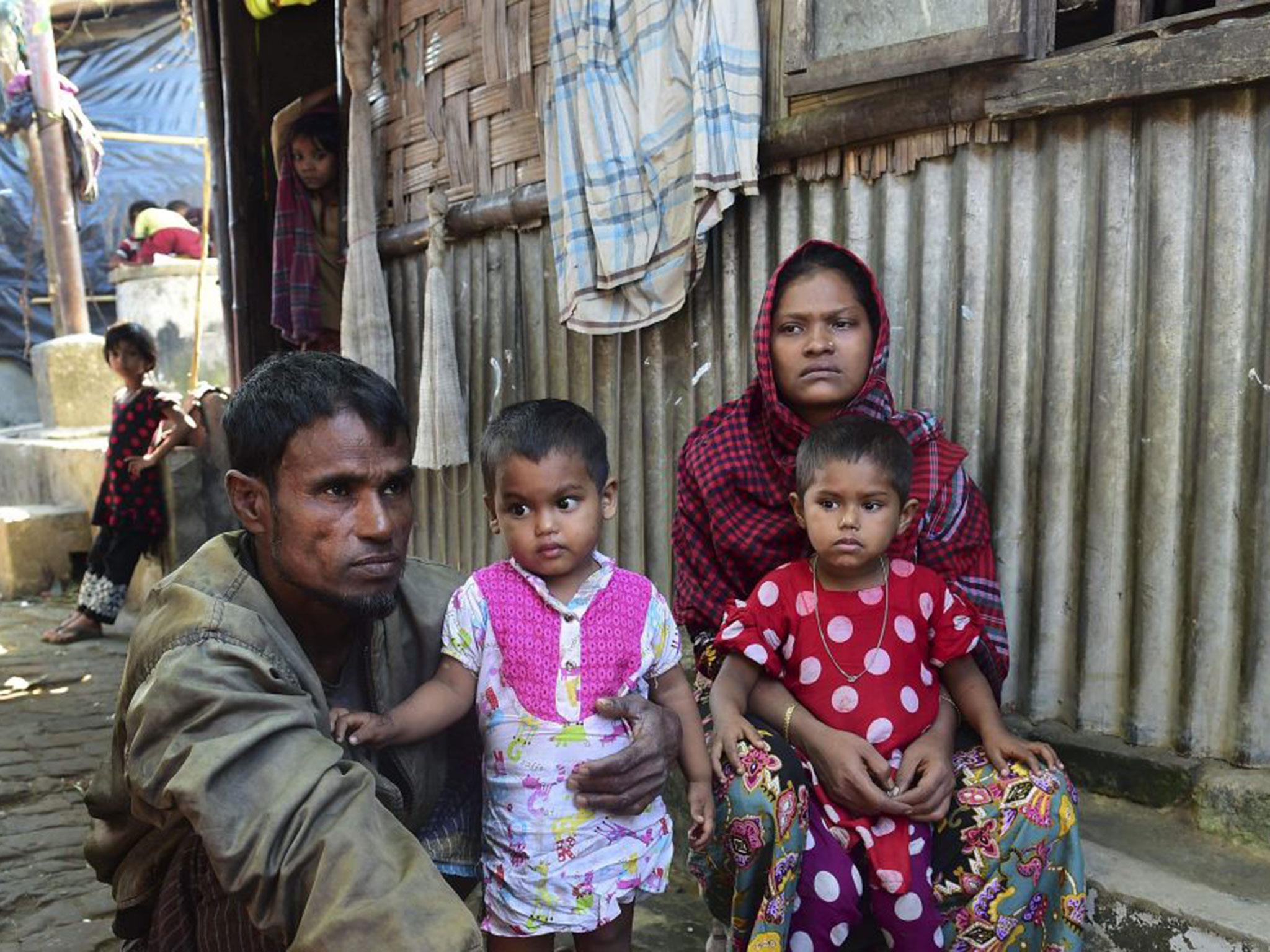Burmese government is 'renewing attacks on Rohingya Muslims,' rights group claims
The Burmese government denies being responsible for a spate of arson attacks on homes, instead suggesting the Rohingya set the fires themselves

Your support helps us to tell the story
From reproductive rights to climate change to Big Tech, The Independent is on the ground when the story is developing. Whether it's investigating the financials of Elon Musk's pro-Trump PAC or producing our latest documentary, 'The A Word', which shines a light on the American women fighting for reproductive rights, we know how important it is to parse out the facts from the messaging.
At such a critical moment in US history, we need reporters on the ground. Your donation allows us to keep sending journalists to speak to both sides of the story.
The Independent is trusted by Americans across the entire political spectrum. And unlike many other quality news outlets, we choose not to lock Americans out of our reporting and analysis with paywalls. We believe quality journalism should be available to everyone, paid for by those who can afford it.
Your support makes all the difference.Burma's military has unleashed a wave of violence against the country's minority Rohingya community, according to allegations a new report by Human Rights Watch.
The group claims villages had been burned to the ground and thousands of Rohingya Muslims forced to flee their homes in the country’s Rakhine State after attacks allegedly by state soliders.
Satellite images reportedly reveal at least 1,500 buildings have been destroyed in arson attacks since early October, and the charity said the violence coincided with military activity in the area in October and November.
Other incidents of building destruction reportedly took place after government forces came under attack in nearby villages.
Brad Adams, Human Rights Watch’s Asia Director, said: “The new findings refute the Burmese military and government’s claims that Rohingya militants were responsible for burning down their own villages.
“The satellite imagery and eyewitness interviews clearly point the finger at the military for setting these buildings ablaze.”
Satellite images reportedly showed Burmese security forces at a guard station directly next to the village of Wa Peik, which was gradually burned to the ground ofer the course of a month.
Mr Adams said: “It’s difficult to believe that militants burned down over 300 buildings in Wa Peik over a one-month period while Burmese security forces stood there and watched.
“Burmese government officials have been caught out by this satellite imagery, and it's time they recognise their continued denials lack credibility.”
Human Rights Watch said it had interviewed Rohingya refugees who described witnessing Burmese soldiers setting builings alight.
One, referred to as Abdul, said: "I saw the army setting fire to the village and aiming and firing at people" with guns and grenade launches.
The Burmese government has denied being responsible for the attacks, instead suggesting the Rohingya had set fire to their own homes.
One army general, Min Aung Hlaing, was quoted by The Irrawaddy as suggesting “some did so in hope of getting a new home”.
The Government used a press conference in November to “strongly refute” the suggestion its troops were responsible for burning down homes in Rakhine State.
It said a team sent to investigate the reports had found around 200 buildings burned down – much fewer than suggested by human rights charities - and concluded the damage was “caused by attackers, not by the Tatmadaw [state forces]”.
Around 30,000 people are believed to have been displaced since violence erupted in October after up to 500 Rohingya people attacked police outposts, but international agencies say they have been denied access to the refugees. Human Rights Watch demanded Burma's rulers immediately allow charities, media and human rights monitors access to the area.
Rohingya Muslims are a heavily persecuted minority in Burma. The Burmese government insists they are illegal immigrants and denies them citizenship rights. Royingya are subjected to strict laws restricting their movement, employment, marriages, and how many children they can have.
Hopes of a new era of human rights were raised in 2015 when pro-democracy campaigner Aung San Suu Kyi was elected as Burma's leader in the country’s first ever openly contested election but she has since been accused of ignoring persecution of the Rohingya.
Join our commenting forum
Join thought-provoking conversations, follow other Independent readers and see their replies
Comments